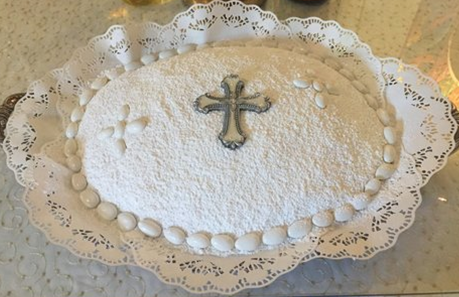Kollyva

KOLLYVA (Greek (kólliva); Ukrainian and Russian: Kutya (or Kutia) is made according to different traditions for memorials, typically on Saturdays of the Souls, the day of a Funeral, the 40th day after death, 3rd month, 6th month, 9th month, annually, and even sometimes just on “big” anniversaries only, such as 5 years, 10 years, etc. KOLIVA (wheat cooked with honey or sugar, sometimes mixed with parsley, raisins, almonds, and other sweets) is often offered on these days of commemorations. KOLLYVA is symbolic of the resurrection of the dead on the day of the Second Coming of the Lord. St. Paul said, "what you sow is not made alive unless it dies" (I Cor. 15:36), and St. John, "unless a grain of wheat falls into the ground and dies, it remains alone; but if it dies, it produces much grain." (Jn. 12:24). Thus, as the wheat is buried in the soil and disintegrates without really dying but is later regenerated into a new plant that bears much more fruit than itself, so the Christian’s body will be raised again from the very corruptible matter from which it is now made; however, it will be raised not in its previous fleshy substance "for this corruptible must put on incorruption, and this mortal must put on immortality" (I Cor. 15:53). The custom of observing prayers for the dead has been held by the Orthodox Church since earliest times. At every Divine Service, the Church offers up prayers for the departed. At the Divine Liturgy, the departed are commemorated at the proskomedia (OrthoFlash, June 8, 2017), in the Litany following the Gospel and when It is truly meet and right ... is sung. In addition, it is customary to have a service for the departed on Saturdays, unless this coincides with a feast on that day.